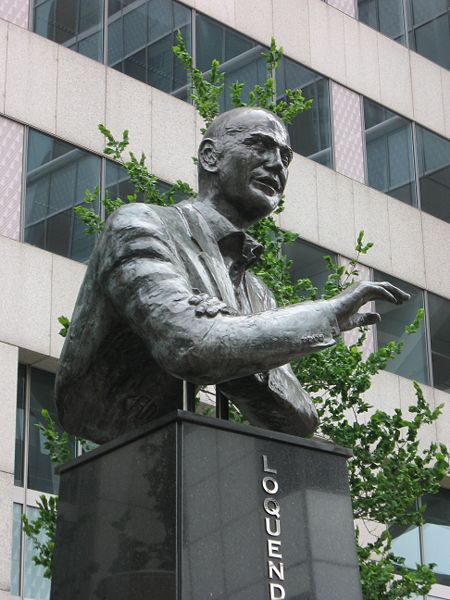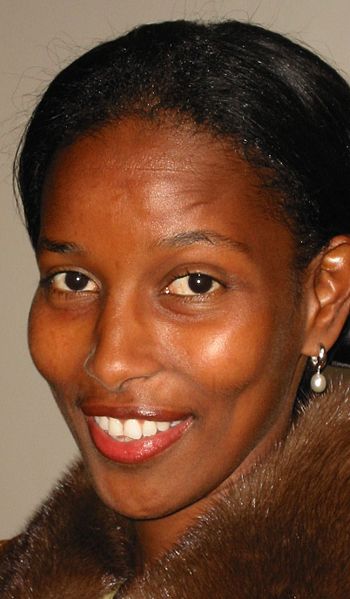
A multicultural crisis?
Since the end of last century an active debate has been going on in the Netherlands about the success or failure of the Dutch multicultural model of integrating people from different origins and different religions. The focus of the debate is whether the Netherlands really is a model of successful integration, and indeed whether or not inter-religious and multicultural coexistence is possible at all. Central to the discussion is the question of whether the past focus of the Dutch on tolerance has served to gloss over a number of real and pressing social problems (to read more about the common problems of immigrants, click >here).
Both in the Dutch media and parliament a call was heard for more 'honest' exposure of the problems emerging from the coexistence between the native population and migrant (read: 'Muslim') communities. Many Dutch held that the time had come to break taboos and to end political correctness. The first political figure whom we will be looking at here, the now murdered Pim Fortuyn, made these views politically acceptable within the Dutch debate.
Pim Fortuyn (1948 - 2002)
Pim Fortuyn, university professor and columnist, burst on to the political scene in the crisis period that followed the terrorist attacks on the Twin Towers in New York. Fortuyn's criticism on the multicultural society and political correctness went hand in hand with his anti-Muslim views. He called Islam 'a backward culture', a view which he expounded at length in his book called Against the Islamisation of Our Culture (Tegen de islamisering van onze cultuur). One of Fortuyn's fears was of pervasive intolerance in the Muslim community. In his view, the Dutch had been inviting fiercely intolerant (Islamist) immigrants into the society in the name of multiculturalism. Fortuyn also wanted to significantly reduce the number of immigrants and asylum-seekers who arrive in the Netherlands each year. "This is a full country," he said.
Statue of Pim Fortuyn in RotterdamHis hard-hitting anti-immigrant views together with his rather flamboyant style found favour right across the Netherlands. As a candidate in municipal elections in Rotterdam in March 2002, he went on to win around thirty percent of the vote. But Fortuyn's political career was short-lived: nine days before the Dutch parliamentary elections of May 2002, in which polls had predicted a landslide win, he was murdered in Hilversum by a Dutch militant animal rights activist. All major parties have adopted tougher immigration and integration viewpoints after the rise and assassination of Fortuyn. >As we have read before, the immigration policy of the Netherlands is now one of the strictest in the EU.
Another important voice in the debate on the multicultural crisis in the Netherlands is that of former Somalian refugee and former Dutch politician, Ayaan Hirsi Ali.
Ayaan Hirsi Ali (1969 - )
Ayaan Hirsi Ali, feminist and writer, was born in Somalia but after fleeing her home country, obtained political asylum in the Netherlands in 1992. In 2001 she came into the spotlight for speaking publicly about the repression of women under Islam and for her criticism of the political correct thinking of the left on the Dutch multicultural society and its problems. In 2002 she defected from the Labour party to the right-wing, because she felt the People's Party for Freedom and Democracy (VVD) was more prepared to tackle the problems faced by Muslim women in the Netherlands.
Hirsi Ali criticises promoters of the multicultural society for their lack of solidarity with Islamic women who live in oppression in the Netherlands. She claims that by being 'tolerant' the Dutch have been turning a blind eye to the oppression of Muslim wives and daughters at the hands of Muslim men in Dutch society. As a feminist, she is against multiculturalism because it limits the rights of women in the new country and keeps oppressive cultural practices of Islam alive. Hirsi Ali believes that the Dutch people are insufficiently aware of the threat which a rapidly growing radical Islam poses for the basic values and norms of Dutch society.
Hirsi Ali has received many awards in the Netherlands and abroad for her fight for human and women's rights. Since her open criticism of Islam in 2002, she has lived with death threats from radical muslims. In 2004 she collaborated with Dutch filmmaker Theo van Gogh on Submission, a short film highly critical of Islam's treatment of women. The film led to van Gogh's murder by a radical Muslim. A note written by the murderer, left on van Gogh's body, threatened Hirsi Ali's life. Since then the Dutch government has provided Hirsi Ali with police protection.
>Click here to read more about the future prospects for the multicultural Netherlands.

